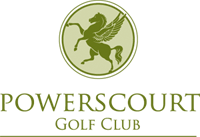Practice
Recent studies in sports practice methods have shown there are two variations that can have a significant effect on learning skills, these are blocked practice and random practice.
Blocked practice – consistent drills, the same movement pattern repeated in a stable and predictable environment.
Random practice – intermingled order of different skills, the same task not repeated in a row.
What are the effects of these two different practice schedules?
Practice performance may be diminished initially with random practice but retention (learning) improves. However blocked practice is very useful in early stages of learning and random practice may cause information overload.
In golfing terms to get the most out of our practice we must first decide what we are trying to achieve during the session. If we are tying to change our technique or fine tune particular movements of our swing then blocked practice is appropriate. If we are trying to develop repetitive subconscious motor patterns (habits), and the subconscious rituals or routines that trigger and send these motor patterns to your muscles then random practice is appropriate.
State dependent learning: –
When we learn in a certain state our ability to recall the learning is dependent on returning to that state.
The three states we may learn and develop our skills in are: –
Practice range state
Golf course practice state.
Golf course competition state.
It is therefore important we practice in our competition state or learn to play competitions in our practice state.
Technique versus Feel practice
(Making better use of your time on the range)
One of the more common faults with golfers who go to the range is the mentality that simply hitting more balls will lead to increases in skill levels. Certainly practicing with regularity is better than not practicing at all, however, practice will only significantly improve your game if you do so correctly.
Perhaps the key is to decide what exactly is the purpose of the practice session on any given day. Our sessions can be broadly categorised into two types of practice – technique practice and feel practice. (Do not confuse warming up before a round of golf as practice).
Technique practice is when your focus is on the mechanics of the swing, or working on refining routines (for example, early on in learning fundamentals, or perhaps the start of the season or out of season when you feel swing changes are needed). In essence the focus of these sessions is on developing a better swing. There will of course be a great deal of conscious effort with each swing.
Feel practice on the other hand does not have the burden of the goal to refine or learn a skill. In no way does feel practice consider the mechanics of the swing, rather it is focused less on technique and more on developing a ‘feel’ for hitting different shots. For example, after becoming comfortable with the technique of chipping, you might practice under different conditions and from various distances and lies. Your practice objective shifts from how to hit a shot, to how to adapt a shot to a specific situation.
It should be noted that it is easier for ‘skilled’ performers to engage in feel practice because they are likely to perform golf shots automatically and hence do not have to worry about the basic execution of the golf swing.
Recognising the value of feel practice increases the strength of the link between practice and competition.
“Why can’t I do it with a card in my hand? I was hitting it so well on the range!
- Recognise the importance of the appropriate physical and mental rehearsal – shot routine.
- Quality practice not just quantity.
- Develop the link between practice and competition by practicing target skills in the state or environment you will perform in.
Paul Thompson
Fellow PGA Professional
Appointments with Paul for golf lessons in Wicklow can be booked via Powerscourt Golf Club Reception: Tel (01) 204 6033 or the Golf Shop Tel (01) 204 6031. Read more about lessons from Paul Thompson by visiting the Powerscourt Golf Club Website.


